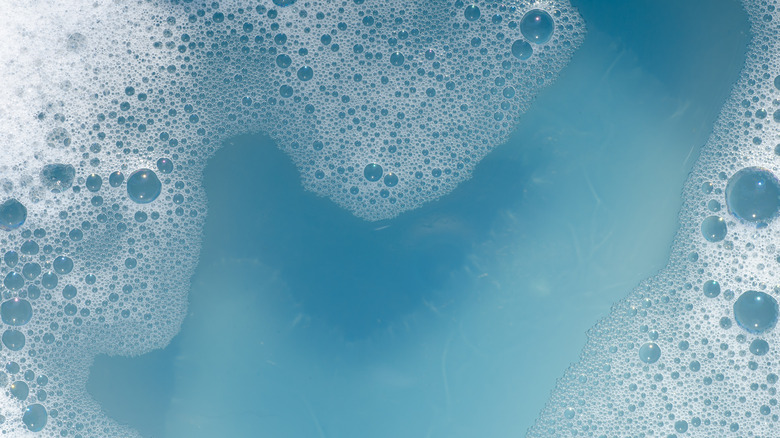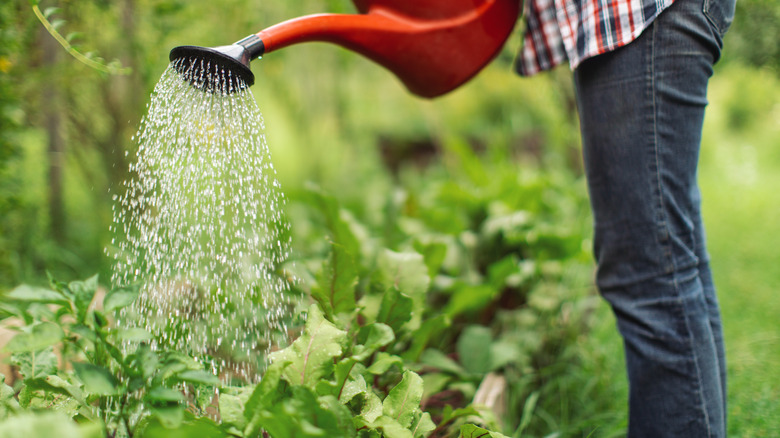Can You Use Leftover Bath Water To Water Your Plants?
Reduce, reuse, recycle. Many people try to abide by the three Rs as much as possible, but how far can you go? Whether you want to be as resourceful as possible or are trying to get your garden through a drought, that bathtub full of water might make you wonder if you can use it. You can give your plants bath water under the right circumstances, provided they're the right plants.
When watering your plants with leftover water, think about what's in the water and where it will go. If you used a bath bomb with glitter or washed a dirty dog, you won't want to water your lettuces with that water and then harvest a fresh salad the next day. The germs in the tub water will contaminate your soil and plants, so consider how you use it. If the water contents won't harm a houseplant and you won't eat the plants in question, though, then it should be perfectly fine to water your plants with bath water from time to time.
Understanding the contents of grey water
Grey water is leftover water from doing the laundry, dishes, or bathing. It's classified as used water containing residue from food or other organic matter, viruses, and bacteria. Sounds icky, right? The ick level is dependent on what's in the water. If your dog or child rolled around in the mud where dogs typically use the bathroom, then that's probably super icky, and you wouldn't want to water a plant with it. But if you showered before taking a relaxing bubble bath, there's likely not anything too gross in the water, making it safer to use on your plants.
Just because the water doesn't require a hazmat suit doesn't mean it's safe for your plants or the soil. Aside from bacteria and viruses, you still need to consider the other contents of the water before you give it to your plants. If you use soap, bath bombs, shampoo, or other products that contain any form of boron, bleach, or sodium, it can damage your soil over time by building up and making the soil too alkaline, which will eventually kill plants if they aren't built for alkaline soils. There's also concern about damage caused by excess salt and other ingredients in the water.
Using grey water the right way
You can use grey water, but make sure to use it correctly. If you plan to use your bath water for your plants, plan ahead and use garden-safe products that are non-toxic, free of salt and boron, and biodegradable. Avoid soaps with dyes and excess artificial ingredients, and go easy on the bath salts. If you can't control these things as you'd like, save the water for houseplants since you won't eat those and their soil isn't part of your backyard environment.
When you do water your outdoor plants with grey water, use the water immediately. Since grey water isn't just water, it has the potential to grow bacteria and smell bad, so don't keep it stored in a bucket for later usage. If you have any doubts about the safety of the water, avoid your edible plants at all cost, especially the plants you won't cook, like lettuces. Never water root vegetables with grey water since the part you eat is what's soaking up the water. Save grey water for the plants you won't eat like your ornamental garden or lawn. Just be sure the contaminants in the water won't harm your plants first.


